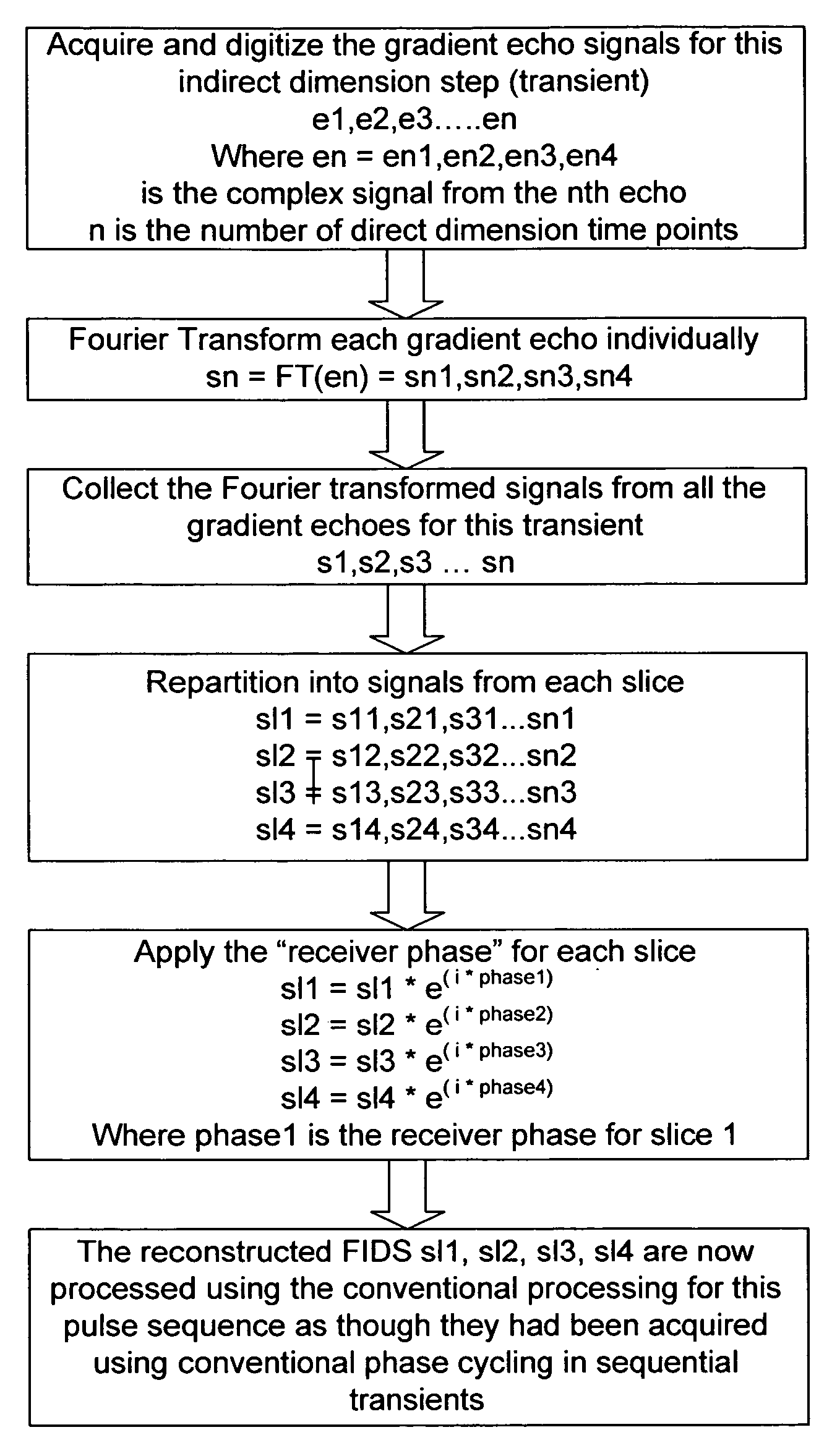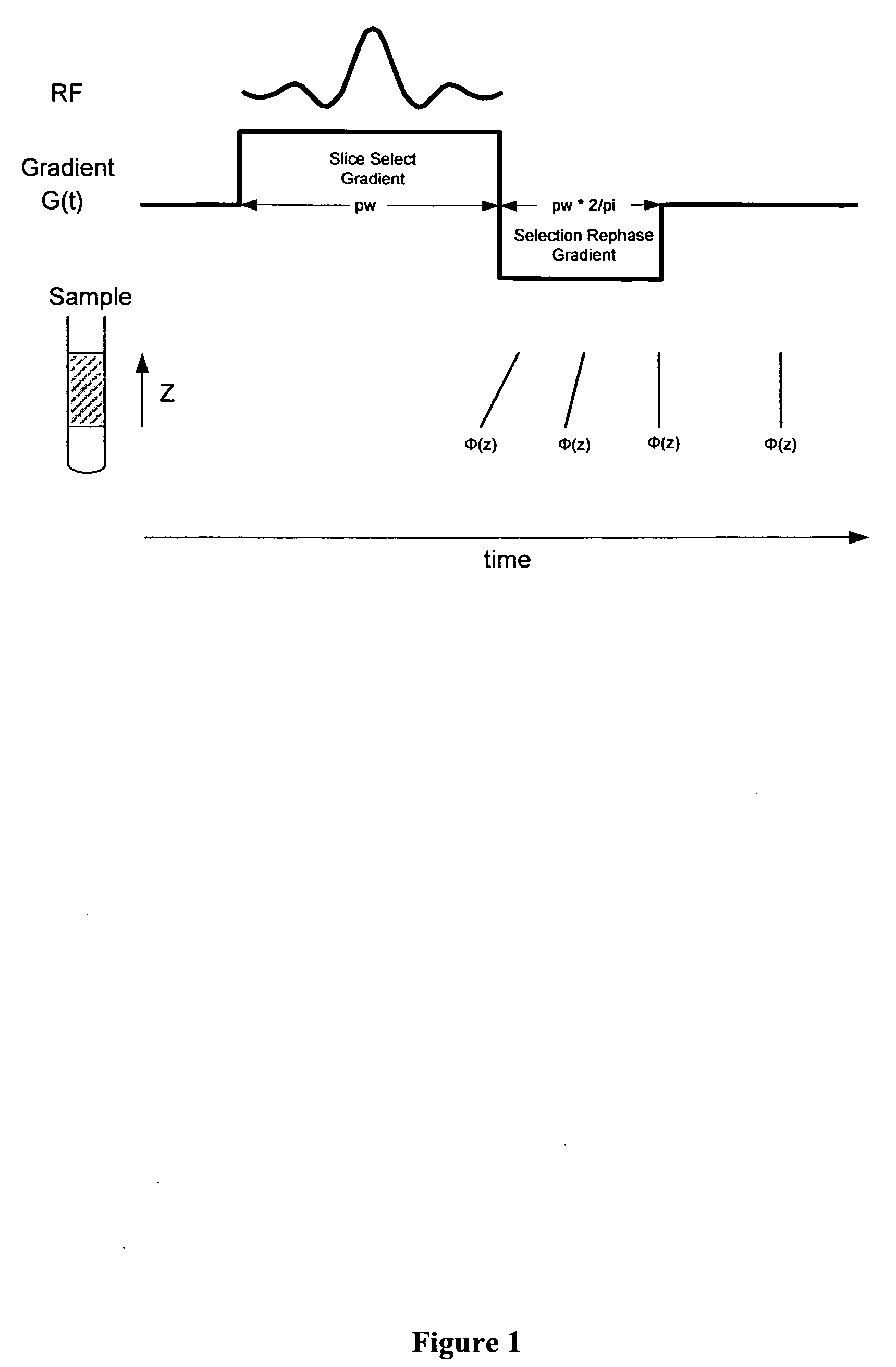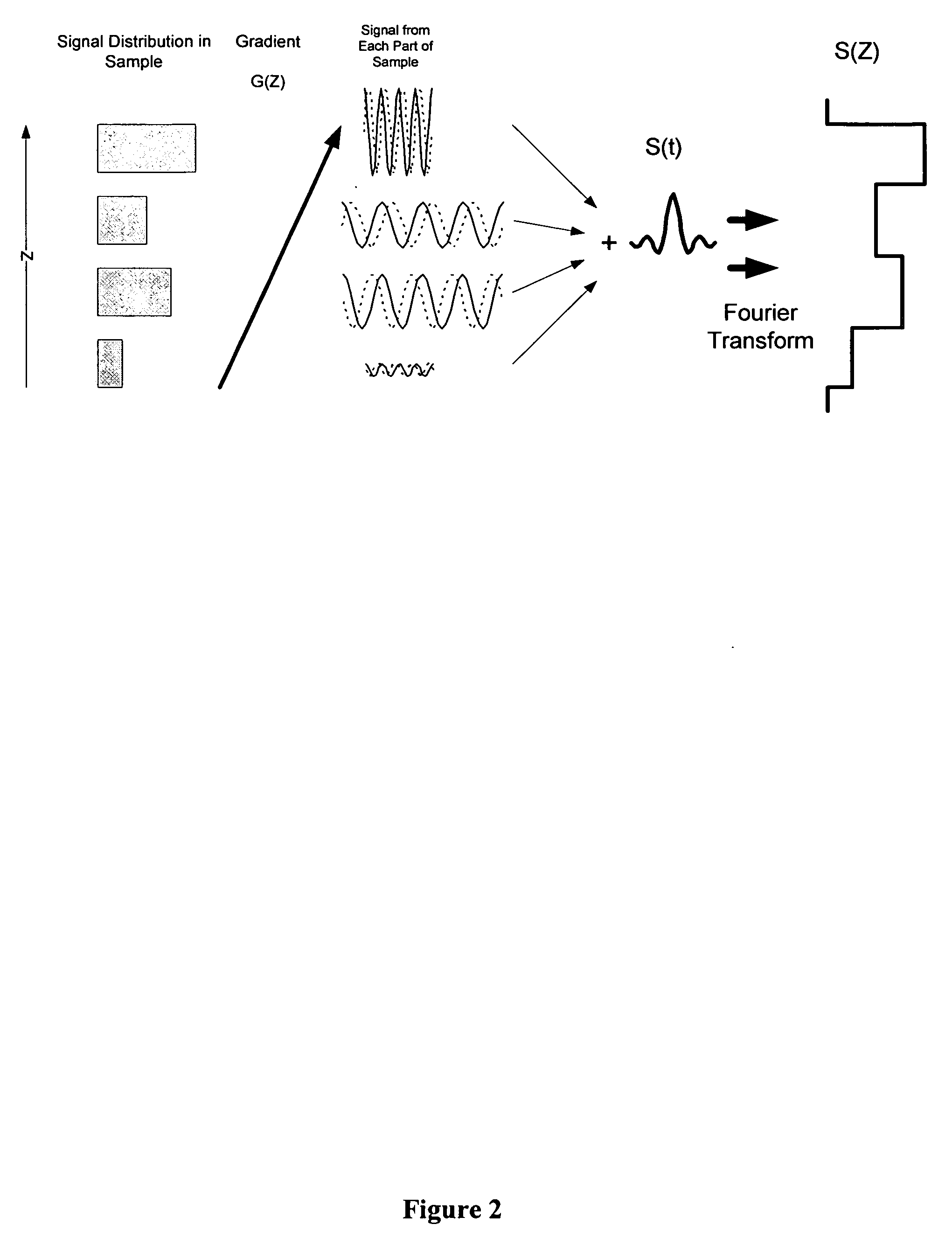Simultaneous phase cycling for nuclear magnetic resonance spectroscopy
a nuclear magnetic resonance and phase cycling technology, applied in the field of simultaneous phase cycling for nuclear magnetic resonance spectroscopy, to achieve the effect of less tim
- Summary
- Abstract
- Description
- Claims
- Application Information
AI Technical Summary
Benefits of technology
Problems solved by technology
Method used
Image
Examples
example 1
Use of Simultaneous Phase Cycling for Single Transient Indirect Dimension Quadrature Detection
[0054] Simultaneous phase cycling was integrated into a modified [1H,15N] HSQC test pulse sequence. With this sequence, the ability to excite four slices with different phases and to separate the signals from the four slices using oscillating gradient acquisition and Fourier transform were demonstrated. These phase cycled FIDs were then used to provide quadrature information in the indirect dimension of the test sequence.
NMR Data Collection
[0055] NMR data were collected on a Varian INOVA 750 MHz and 600 MHz spectrometers (Varian, Palo Alto, Calif.) equipped with a cryogenic probe. Both spectrometers contain multiple waveform generators allowing one to apply shaped pulses on 1H, 13C, and 15N RF channels, and contain a pulsed field gradient (PFG) module capable of producing a linear magnetic field gradient along the B0-field defining the Z axis of up to 30 Gauss / cm. The spectrometers were...
example 2
Use of Simultaneous Phase Cycling for Single Transient Homonuclear Coherence Selection
[0072] A COSY RF pulse sequence uses two 90° RF pulses with an incremented evolution period in between them in order to produce a two dimensional spectrum with a diagonal peak for each atomic nuclei in the sample and a cross peak whenever two nuclei are scalarly coupled. Unfortunately, cross and diagonal peaks in COSY are 90° out of phase, so the broad, dispersive diagonal signal often obstructs viewing of nearby cross peaks. In a DQF COSY pulse sequence, a third RF pulse is added which, in conjunction with double-quantum filtration, results in diagonal and cross peaks with the same phase. A four step phase cycling scheme is usually used for DQF COSY.
[0073] Simultaneous phase cycling was applied to a DQF COSY pulse sequence in order to enable simultaneous execution of the required four phase cycling steps.
[0074]FIG. 12 shows the conventional sequence for executing a homonuclear DQF COSY, and Tab...
example 3
Use of Simultaneous Phase Cycling for Acquisition of G-Matrix Fourier Transform (GFT) NMR
[0084] Simultaneous phase cycling was used to acquire a (3,2)D HC(C)H, providing FIDs from a single transient which need to be linearly combined to yield basic and central peak sub-spectra.
GFT Pulse Sequence with Simultaneous Phase Cycling
[0085] A complete pulse sequence for conducting simultaneous phase cycling GFT NMR was developed in the “C” like VNMR pulse sequence language by incorporating the already developed selective excitation and oscillating gradient acquisition modules into a GFT (3,2)D HC(C)H COSY pulse sequence. The simultaneous phase cycling version of the pulse sequence is shown in FIG. 19. The phase cycles performed in the conventional experiment are shown in Table 7. (A signal name is included to guide the understanding of the associated data processing.)
TABLE 7Phase Cycles for GFT (3, 2)D HC(C)H COSYPhase on FirstPhase on FirstReceiverCycleSignal NameProton 90° PulseCarb...
PUM
 Login to View More
Login to View More Abstract
Description
Claims
Application Information
 Login to View More
Login to View More - R&D
- Intellectual Property
- Life Sciences
- Materials
- Tech Scout
- Unparalleled Data Quality
- Higher Quality Content
- 60% Fewer Hallucinations
Browse by: Latest US Patents, China's latest patents, Technical Efficacy Thesaurus, Application Domain, Technology Topic, Popular Technical Reports.
© 2025 PatSnap. All rights reserved.Legal|Privacy policy|Modern Slavery Act Transparency Statement|Sitemap|About US| Contact US: help@patsnap.com



